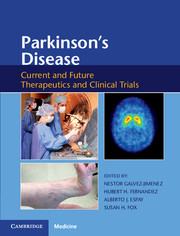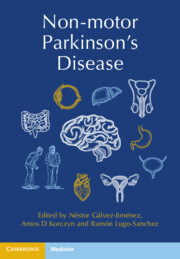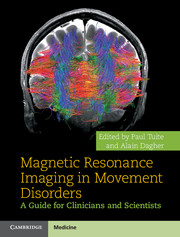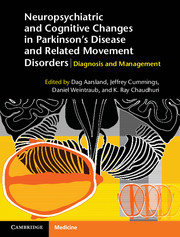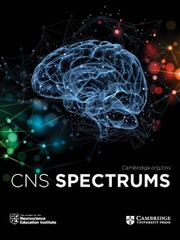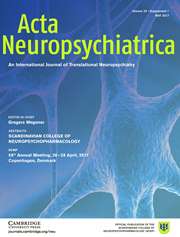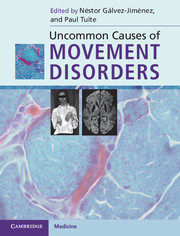Parkinson's Disease
Parkinson's disease is no longer considered only a motor disorder. It has become evident that the pathological changes are broad, the progression seems to follow a pattern suggesting transynaptic transmission via templation of proteins in a prion-like fashion, and that these pathological changes usually antedate the motor symptoms by decades. This book emphasizes treatment options for Parkinson's disease, critically assessing pharmacologic and surgical interventions for all aspects of the disease. Evidence from randomized controlled clinical trials is highlighted to develop practical recommendations for clinical practice. Lessons learnt from clinical trials – and controversies and future challenges – are all addressed. Readers will find the necessary clinical and scientific foundations for the understanding of the disease, the underpinnings of the pathological processes, the identification of disease biomarkers, and the basis for solid therapeutics. Chapters are authored by an international team of specialists who bring their expertise to improving the management of this disease.
- Covers the full range of therapeutic options for Parkinson's disease - medical and surgical - and compares their effectiveness
- Treatment advice based on evidence from clinical trials rather than expert opinion
- Also looks at areas of controversy where therapeutic options are less clear-cut, making it useful for patients unsuitable for traditional therapies
Reviews & endorsements
'In summary, this is an excellent book on the most current scientific knowledge we have so far on Parkinson's disease, including surgical management, results from clinical trials, and the most current and future treatment options available with drugs.' Nano Khilnani, Biz India Online News (www.bizindia.net)
Product details
March 2016Hardback
9781107053861
384 pages
253 × 194 × 21 mm
0.99kg
26 b/w illus. 9 colour illus. 48 tables
Available
Table of Contents
- Part I. The Pharmacological Basis for Parkinson's Disease Treatment:
- 1. The pharmacological basis of Parkinson's disease therapy: an overview
- 2. Anticholinergic agents in the management of Parkinson's disease
- 3. Amantadine and antiglutamatergic drugs in the management of Parkinson's disease
- 4. Monoamine oxidase inhibitors in the management of Parkinson's disease
- 5. Oral dopamine agonists in the anagement of Parkinson's disease
- 6. Subcutaneous, intranasal and transdermal dopamine agonists in the management of Parkinson's disease
- 7. Oral and infusion levodopa therapy in the management of Parkinson's disease
- 8. Catechol-O-methyltransferase inhibitors in the management of Parkinson's disease
- 9. Experimental pharmacological agents in the management of Parkinson's disease
- Part II. Management of Non-Motor Symptoms of Parkinson's Disease:
- 10. Management of autonomic dysfunction in Parkinson's disease
- 11. Management of cognitive impairment in Parkinson's disease
- 12. A neurobehavioralist approach to the management of cognitive impairment in Parkinson's disease
- 13. Management of disease-related behavioral disturbances in Parkinson's disease
- 14. Management of treatment-related behavioral disturbances in Parkinson's disease
- 15. Management of sleep disorders in Parkinson's disease
- 16. Management of pain and euromuscular complications in Parkinson's disease
- Part III. Surgical Management of Parkinson's Disease:
- 17. Thalamotomy, pallidotomy and subthalamotomy in the management of Parkinson's disease
- 18. Deep brain stimulation of the globus pallidus internus in the management of Parkinson's disease
- 19. Deep brain stimulation of the subthalamic nucleus in the management of Parkinson's disease
- 20. Deep brain stimulation of the thalamic ventral intermediate nucleus in the management of Parkinson's disease
- 21. Emerging targets and other stimulation-related procedures in the management of Parkinson's disease
- Part IV. Clinical Trials in Parkinson's Disease: Lessons, Controversies and Challenges:
- 22. Rating scales and clinical outcome measures in the evaluation of patients with Parkinson's disease
- 23. Functional imaging markers as outcome measures in clinical trials for Parkinson's disease
- 24. Cerebrospinal fluid and blood biomarkers as outcome measures in clinical trials for Parkinson's disease
- 25. Lessons learned: neuroprotective trials in Parkinson's disease
- 26. Lessons learned: symptomatic trials in early Parkinson's disease
- 27. Controversy: GPi vs STN deep brain stimulation in the management of Parkinson's disease
- 28. Controversy: ablative surgery vs deep brain stimulation in the management of Parkinson's disease
- 29. Controversy: mid-stage vs advanced stage deep brain stimulation in the management of Parkinson's disease
- 30. Lessons and challenges of trials for cognitive and behavioral complications of Parkinson's disease
- 31. Lessons and challenges of trials for other non-motor complications of Parkinson's disease
- 32. Lessons and challenges of trials involving ancillary therapies for the management of Parkinson's disease
- Index.

